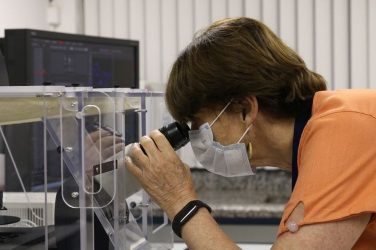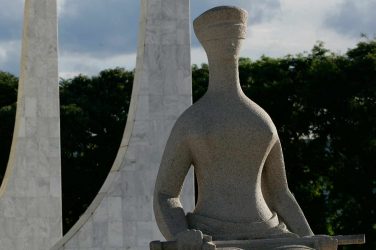The Brazilian Workers Party is not a Maoist party, but it should take one of his sayings to heart: “with the weapon of criticism and self-criticism, we can get rid of a bad style and keep the good.” Of course, self-criticism could be helpful for all the parties at this time of widespread disillusionment.
As Marina Silva recently said: “if we are not going to just put old wine in new bottles, it is necessary to make a profound self-criticism, something which I do not see going on in the majority of the political parties.”
But the Workers Party held the presidency for thirteen years, ending in 2016, so it needs to accept a major share of responsibility for the outcome.
When the Workers Party was founded, in 1980, It was a rare exception to the ideological rigidity and organizational sclerosis of the global left. It was progressive, pluralistic and humanistic in ideology and democratic in organization. It held honest internal elections contested by well-defined factions.
Its charismatic leader had risen from abject poverty to become a skillful union organizer who outmaneuvered the military dictatorship in the 1970s. When Lula da Silva was elected President of Brazil in 2003 the future seemed bright.
It seemed even brighter when he passed the presidential sash to his chief-of-staff, Dilma Rousseff, in 2011. Barack Obama remarked, “I love this guy. He’s the most popular politician on earth.”
But since 2014 it has been one disaster after another. The economy is in tatters, Dilma Rousseff was impeached and Lula has been sentenced to a long prison term for corruption. The Party is in deep denial, denouncing the impeachment as a coup d’état and Lula’s conviction as political persecution.
It is true that the offenses used as legal grounds for the impeachment were modest, but it was done constitutionally and was strongly supported by the public. Lula’s conviction was rigorously reviewed by four quite professional judges and his offenses have been further substantiated by many responsible officials and corporate officers.
As Marina Silva said, “all the records have been carefully reviewed, with all the rigor needed for a case of this magnitude. Lula’s lawyers are certainly well paid and competent. All measures have been taken to assure him the most rigorous defense.”
It is time to give up on denial and make an honest self-criticism.
Lula’s supporters portray his arrest as the repression of a working-class hero by a rapacious and exploitative elite. But any self-criticism would have to acknowledge that the Workers Party has been closely entangled with that very elite for years.
And the Lava Jato prosecutors have prosecuted many powerful conservative and pro-business politicians and business oligarchs affiliated with other parties, including Brazil’s wealthiest tycoon, Eike Batista, and the former governor of the state of Rio de Janeiro, Sérgio Cabral.
Eduardo Cunha, the president of the Chamber of Deputies who lead the impeachment against Dilma Rousseff, was arrested and imprisoned by the Federal Police on October 19, 2016. Aécio Neves, the leading opposition candidate for president against Dilma Rousseff in 2014 and former governor of the state of Minas Gerais is under investigation for corruption.
There are many, many others. It is false to portray the rigorous anti-corruption investigations and prosecutions as a campaign against the left. They are a much-needed corrective for pervasive corruption that is a Brazilian tradition that became even more blatant and pervasive under Workers Party governments.
An honest self-criticism would have to acknowledge that the failure of the Party’s democratic socialist project was mired in wishful thinking, hubris, opportunism and cynicism. Wishful thinking included believing that Brazilians were ready to replace the market economy and electoral democracy with participatory democracy and an ill-defined socialism.
The more realistic Workers Party leaders learned this lesson as soon as they began to assume governing responsibilities on the state and local level. When the Party surprisingly won the mayoralty of São Paulo in 1988, leaders found that they could not run the huge metropolis without including all the stakeholders including especially the business community.
The professional politicians in the Party accepted this, and many went on to be effective urban and state leaders. But the rhetoric didn’t change. The Party preached socialist transformation and practiced liberal pragmatism. As a result, the Party lost the enthusiastic support of many of the idealists who made it so distinctive, some of whom took their wishful thinking into sectarian parties.
As President, Lula’s hubris included bragging that he had dramatically transformed the Brazilian economy when what he had really done was tighten up the “neoliberal” economic model of his predecessor.
Dilma Rousseff’s hubris was believing that Brazil’s success in managing the global crisis of 2008 with heavy stimulus spending meant that she had repealed the laws of economics and could spend with abandon.
The Party’s opportunism meant expanding the already bloated civil service to provide well-paying jobs to Workers Party militants. Opportunism meant allying with conservative and clientelist parties to share patronage rather than joining with the best of the social democrats to bring about needed reforms. Opportunism meant blaming “neoliberals” for failures instead of taking responsibility for not implementing realistic policies.
Lula’s leadership group cynically believed that the Brazilian Congress was so hopeless that the only way to pass needed legislation was to simply buy votes. An honest self-criticism would admit that instead of keeping its promise to end corruption the Workers Party institutionalized it as a key tool of its political machine.
The Party used kickback money from contractors to pay regular monthly stipends to politicians from clientelist allied parties. In a country with a less cynical legislature and populace Lula would have been impeached when this scheme was uncovered during his first term.
If he had accepted Harry Truman’s slogan, “the buck stops here,” he would have accepted responsibility for the actions of his deputies. But he passed the buck to his chief-of-staff who took the fall and went to prison. An honest self-criticism would mean stopping pretending that Lula didn’t know what was going on with the mensalão.
If the Workers Party, which had always claimed to be honest and transparent, was systematically corrupt and nothing happened, who can be surprised that their allies and partners stole a few millions of dollars here and there? Lula bragged of his government’s honesty and claimed that the increase in scandals just proved that they were digging out the dirt.
The Workers Party does deserve credit for continuing to strengthen and professionalize the federal police and judiciary, a process begun by Fernando Henrique Cardoso. Imagine their shock when they were investigated, indicted and convicted by police, prosecutors and judges many of whom they had put into office.
Self-criticism means recognizing the Party’s failure to make the political alliances needed to pass the reforms needed to break out of Brazil’s persistent economic constraints. These reforms include pension reform and spending cuts that are especially difficult for the Workers Party with its strong base among public employees.
The persistent failure of most of these reforms, under Cardoso as well as under Lula and Dilma, shows that they cannot be made by one side alone. Rather than blaming each other for failure, the PT and the PSDB need to work together, along with as many allies as possible. Lula and the Workers Party may not be ready for this, even if he is somehow able to run for election.
Instead of using his great prestige and credibility to help the country confront painful realities, Lula is indulging in conspiracy theories such as blaming Americans for the corruption in Petrobras, without a shred of evidence.
Lula’s role as ex-president contrasts unfavorably with Fernando Henrique Cardoso’s. As Marina Silva notes, Cardoso is exceptional among Brazilian politicians for making a serious effort at criticism of his own party. Sadly, however, his efforts have not been taken to heart by other PSDB leaders.
If Lula and FHC joined together in leading their parties in self-criticism, it could lead to real shift in Brazilian political culture. If Lula were seen as making an honest effort to confront the defects of Brazilian political culture, including the PT as a major participant, it would be a real step towards a new beginning for Brazil.
Part of that new beginning could include forgiving past transgressions, including the ones that led to his imprisonment.
But none of this is possible without balancing criticism of others with honest self-criticism. Brazilians of all parties need to struggle against wishful thinking, hubris, cynicism and opportunism.
Reference: Marina Silva, “Não posso mudar de opinião só para conquistar eleitores de Lula,” BBC Brasil, https://www.bbc.com/portuguese/brasil-44516251
Ted Goertzel, Ph.D., is a retired professor at Rutgers University. He is the author of biographies of Fernando Henrique Cardoso and Luiz Inácio Lula da Silva. http://crab.rutgers.edu/~goertzel/













